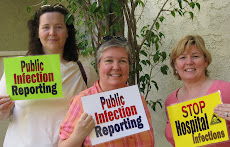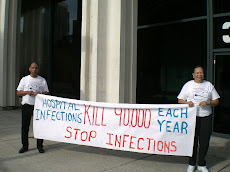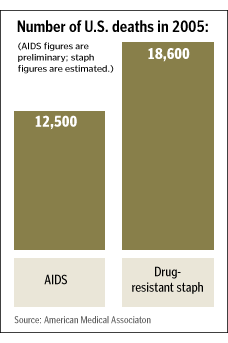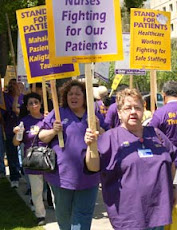In a great effort, these bills were passed by the Senate and are currently in the Assembly Health Committee.
SB158, sponsored by Sen. Dean Florez and SB 1058 sponsored by Sen. Elaine Alquist.
The Committee has scheduled a hearing on June 24 for both bills. I have been asked to speak at the hearing for SB158 and share my Survivor Story in the hopes that it will touch a legislator’s heart to vote “Yes” and help save lives.
Prior to this hearing we are asking people with personal infection stories to visit legislators in Sacramento and ask them to support these bills. We don’t want these bills to die in this committee after getting this far!
There are two things you can do to help these bills pass:
If you live in the area, travel to Sacramento for the hearing. We would like to have as many members of the public there as possible, especially Survivors and family members of victims of Hospital acquired infections.
Another thing you can do is determine if your assembly member serves on the Health Committee and contact him or her.
We support these bills because they include:
- Public reporting of hospital acquired infection rates
- Screening for MRSA or other effective prevention techniques
- State oversight on hospital cleaning practices and policies
- State agency oversight on infection issues
Links to the bills:
SB158 (Florez): http://info.sen.ca.gov/cgi-bin/postquery?bill_number=sb_158&sess=CUR&house=B&site=senSB1058 (Alquist): http://info.sen.ca.gov/cgi-bin/postquery?bill_number=sb_1058&sess=CUR&house=B&site=sen
Thanks for your support
Committee Members
Mervyn M. Dymally - Chair
Dem-52
(916) 319-2052
Assemblymember.dymally@assembly.ca.gov
Alan Nakanishi - Vice Chair
Rep-10
(916) 319-2010
Assemblymember.nakanishi@assembly.ca.gov
Patty Berg
Dem-1
(916) 319-2001
Assemblymember.berg@assembly.ca.gov
Wilmer Amina Carter
Dem-62
(916) 319-2062
Assemblymember.Carter@assembly.ca.gov
Hector De La Torre
Dem-50
(916) 319-2050
Assemblymember.DeLaTorre@assembly.ca.gov
Kevin de Leon
Dem-45
(916) 319-2045
Assemblymember.deLeon@assembly.ca.gov
Bill Emmerson
Rep-63
(916) 319-2063
Assemblymember.emmerson@assembly.ca.gov
Ted Gaines
Rep-4
(916) 319-2004
Assemblymember.Gaines@assembly.ca.gov
Loni Hancock
Dem-14
(916) 319-2014
Assemblymember.hancock@assembly.ca.gov
Mary Hayashi
Dem-18
(916) 319-2018
Assemblymember.Hayashi@assembly.ca.gov
Edward P. Hernandez
Dem-57
(916) 319-2057
Assemblymember.Hernandez@assembly.ca.gov
Bob Huff
Rep-60
(916) 319-2060
Assemblymember.huff@assembly.ca.gov
Dave Jones
Dem-9
(916) 319-2009
Assemblymember.jones@assembly.ca.gov
Sally J. Lieber
Dem-22
(916) 319-2022
Assemblywoman.lieber@assembly.ca.gov
Fiona Ma
Dem-12
(916) 319-2012
Assemblymember.Ma@assembly.ca.gov
Mary Salas
Dem-79
(916) 319-2079
Assemblymember.Salas@assembly.ca.gov
Audra Strickland
Rep-37
(916) 319-2037
Assemblymember.strickland@assembly.ca.gov








